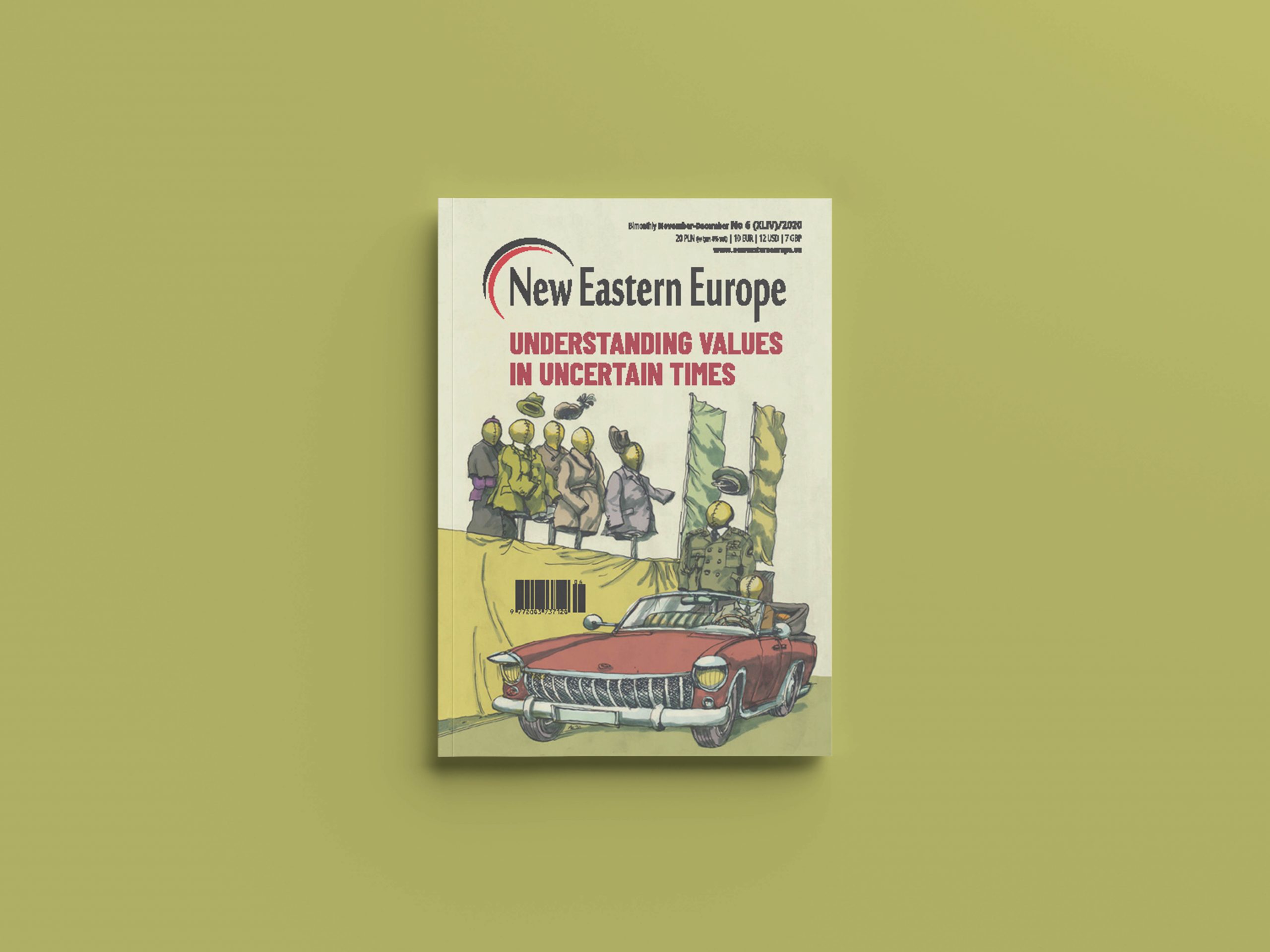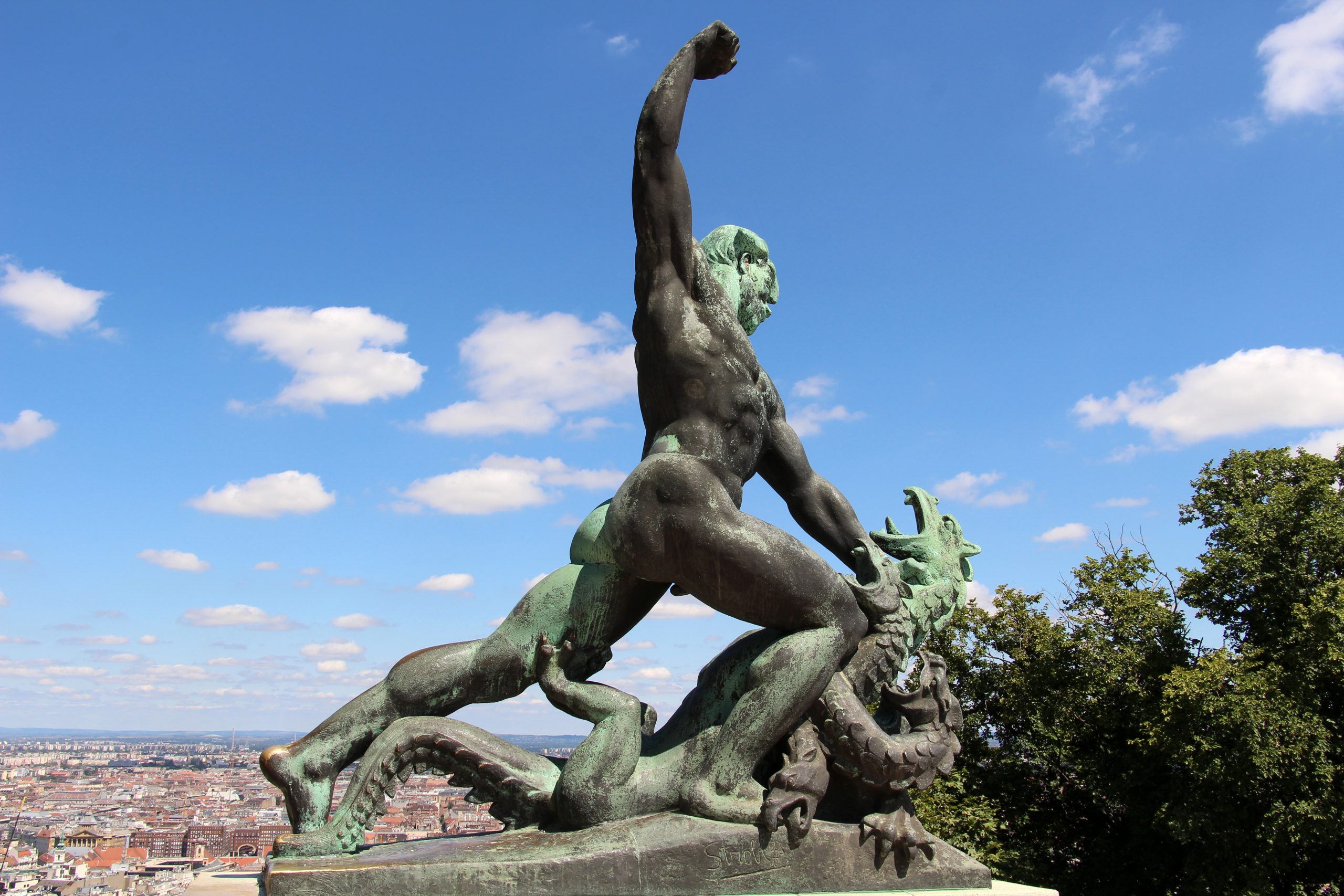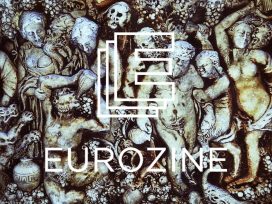Post-Socialist baggage is sometimes still blamed for Hungarians’ support for an illiberal supermajority. But can a society be expected to democratize when its social institutions have been subjected to decades of attrition?
Something is rotten in Hungary, as the international media seems keen on pointing out. Why it is rotten, however, is rarely explained. Foreign interest in Hungarian politics has increased, especially since the Brexit vote and Donald Trump’s election in 2016 – both of which demonstrated how serious the far-right shift of mainstream politics has become. Yet Hungary’s illiberal supermajority had by then existed for six years, and all the major battles over the country’s democratic institutions already fought and lost.

‘The Lonely Cedar’ by Tivadar Csontváry Kosztka (oil on canvas, 1907). Public domain, via Wikimedia Commons.
An expedited march through the institutions
Shortly after Viktor Orbán’s party Fidesz came to power in 2010, the 1990 constitution was replaced by a Basic Law that was consulted with no living soul – written by now the infamous József Szájer.
The electoral system was redesigned to gerrymander districts, fragment the already weak opposition and benefit the largest winner; tweaks to prevent opposition alliances are still ongoing. A new media law instated an authority directly appointed and controlled by the government, paving the way for Fidesz’s overwhelming dominance of the national media. The labour code was gutted to match international investors’ interests, while the social safety net was transformed into a 21st-century workhouse system for the perpetual exploitation of the jobless poor.
By 2013 Hungary had seen its biggest mass protests since the end of the Soviet era. Tensions at the European Union level were also rising. But Fidesz managed to renew its supermajority in 2014, and Orbán started to gradually shed his old guard, replacing the founding generation of his party with those he trusted to have no autonomous will.
The ridiculously named Regime of National Co-operation (Nemzeti Együttműködés Rendszere, NER) was thickening like cement in the summer sun.
Fidesz had fixed the race and made sure to undercut any contender who may have challenged them legally or economically. But the fact remains that the party still secures over 40 per cent of the vote in national elections. In such a disproportionate and unfair electoral system, this provides Fidesz with over two-thirds of mandates in parliament. Even after all the voter suppression and the unfair allocation of power, their ability to mobilize such a proportion of the electorate still poses the question: do Hungarians actually like what Orbán is doing?

This article was first published by Eurozine’s Polish partner journal ‘New Eastern Europe’. Read our review of their 6/2020 issue here.
According to several surveys on values in Hungary, it would seem otherwise. While the self-proclaimed illiberals practice textbook neoliberalism, research suggests that the public preference in economic matters is overwhelmingly social democratic: Hungarian voters long for a strong welfare state. This is true almost a decade into Fidesz’s rule, with most major public sectors of care and support collapsing, from education to healthcare. In a 2016 survey, for instance, a majority of participants agreed that it should be the state’s responsibility to tackle inequality; most supported a wealth tax and progressive taxation. 90 per cent oppose dismantling universal healthcare and 86 per cent believe that the gender pay gap needs to be closed (including 80 per cent of Fidesz voters).
Cultural pessimism
The countries of the former Eastern Bloc are often said to be under a communist curse, carrying authoritarian baggage that justifies their democratic failures. Such defeatism is not only culturalist, but also views these states through a different lens than their western counterparts, who now seem to have produced their own painful fiascos. So much so that they serve illiberals like Orbán as justification.

The Budapest Statue of Liberty holds a palm leaf as a symbol of peace; one of its side figures advances with a torch in hand, as designed by Zsigmond Kisflaudy Stróbl. Erected in 1947, the assembly was meant to symbolize the Hungarian people’s gratitude toward the Soviet troops for liberating them from Nazi occupation. Photo from Wikimedia Commons.
The Curse of Kádár1 is still often quoted as an explanation for Hungarians’ political disengagement and insistence on state assistance.
The Hungarian political economist Zoltán Pogátsa points out that earlier research itself often had a strong ideological bias, where basic demands for a welfare state were interpreted as a preference for statism and an under-developed culture of self-sufficiency.
However, it has never been realistic to demand that a society ‘grow up’ to meet the democratic ideals of western states, at the same time that public welfare has been consistently cut and inequalities have been steeply rising, leaving eight out of ten Hungarians without any savings and four out of ten under the poverty line.
An abundance of ambivalence
So what keeps Fidesz in power if Hungarians overwhelmingly want a welfare state?
Well, xenophobia and racism are a good place to start. In a 2018 survey, participants largely supported welfare measures yet blamed the poor for their own poverty. The vast majority do not want incoming migration and believe that the Roma will never be properly integrated. However, the survey found that a half of all participants would not be ashamed to have a gay relative – a recent development in LGBTQ+ acceptance, despite the rise of violent homophobic rhetoric in public discourse.
There are certain ambivalences towards authority as well: eight out of ten believe that the main goals of parenting are discipline and authority – a disheartening result. Only a third would refuse to hit their kids, and over a half would support the return of capital punishment.
It may be surprising that 77 per cent think every authority can be questioned. But this may have less to do with a love of freedom than the need to survive in a culture where rules are set without public involvement or consultation. When it comes to following rules, one should consider the heritage of the odd intermarriage between the Habsburg imperial establishment and the folktale-inspiring meanderings of the Soviet administration.
My Viennese colleagues often warn me about Austrian bureaucracy. Well, they should see Hungary’s.
Vox populi
Being a Hungarian, I decided to ask my neighbours on the matter, since one should never fully trust the wise folks with their charts and sociology degrees. I posed the following question on social media: what are the most typical values of Hungarians? Of course, my Facebook followers are nowhere near a representative focus group, but it still helped map some topoi.

A side figure of the Budapest Statue of Liberty is executing some quite desperate dragons. Photo from Wikimedia Commons.
The conversation became all the more fruitful by the imprecise wording: a magyarok legjellemzőbb értékei – both the most typical values of Hungarians, but also their ‘treasures’, or the things they value.
Among the one-word responses, pálinka (schnapps) was the absolute winner – also referring to Orbán’s renowned ‘freedom fight’ against the EU for tax-free home distilling. On a related note, many raised our legendary alcohol consumption (Hungary is among the top alcoholic nations in the EU). But the good part of almost 400 comments and private messages drew an image well beyond this spiritual health hazard.
Our language seemed to be a shared value for a lot of commenters. Multiple translators and writers brought up our gender-neutral pronouns; despite German-inspired initiatives in the 19th century, gender signifiers have not found a grip on our grammar.
Others mentioned our famous vocabulary for verbal aggression, especially the long and intricately interwoven curses that can incorporate any number of relatives, contemplations of morals, mating and mortality, as well as agricultural maxims, according to demand.
Hungarian is often believed to be an isolated language ‘within a sea of Slavs’, its Finno-Ugric relatives thousands of miles away. But in reality, it proudly bears the marks of our geography and history. The great majority of the loan-words in the Hungarian lexicon are from neighbouring Slavic languages, but Turkish, German and Latin contributions are significant as well. There are even many old Iranian traces.
Bitter undertones
I do not wish to descend down the slippery slope of national characteristics; however, seeing what Hungarians mention about themselves is intriguing – and occasionally saddening. Since conservative and far-right politics have monopolized national sentiment, many others find it hard to even consider themselves part of the nation or society – which is pretty much what is intended by the partisan abuse of language. The respondents were Hungarian, both from within the country’s borders and beyond, yet many talked about ‘them’ and fewer about ‘us’.
The traits mentioned can often be paired up, and most have bitter tones: sarcasm-cynicism, defiance-stubbornness, resilience-cunning, ambition-antagonism, and adaptivity-avoidance. These characteristics are coded in the culture and guide one’s moral compass – or put it to sleep, depending on individual choice. The same context that urges one person to innovate can lead another to make questionable compromises.
There is a saying that ‘the Hungarian makes merry by weeping’. The literary canon doubles down on this with a national anthem written in the 19th century by the unsuccessful progressive national politician and ever-so-gloomy poet Ferenc Kölcsey. The national poem, the Szózat (‘Appeal’) by Mihály Vörösmarty, enlists all the suffering and injustice this nation has had to suffer, which perhaps may one day lessen.
Historical baggage
Are Hungarians, then, determined to be incapable of overcoming their historical baggage? Well, some seem to think so. Researchers terrified to see Hungary on a value map next to Bulgaria and Moldova did not even bother to hide their prejudices against other eastern countries. They were often surprised by the fact that ‘Hungary is more secular than its development would deem reasonable, and more closed than the median values of western culture’.
Yet it is worth remembering that political trajectories do not follow pre-drawn patterns, as much as modernisation theorists liked to think. There is no still evidence for the existence of national fate, so we may as well look at the circumstances that can hold societies back in their democratisation.
Pogátsa draws attention to the ever-diminishing social safety net that has sent the large parts of society on a downward spiral towards impoverishment and extreme economic polarisation, whose effects are now showing in political choices. This development is to a large extent the result of post-Soviet economic shock therapy and decades of dogmatic neoliberalism, which cut down on the very circumstances that should enable societies to develop democratic norms and values.
Changing course
And yet, the more open that political repression has become in the past decade, the more that resistance has grown. At the time of writing, members of the University of Theatre and Film in Budapest had been occupying their institution for almost two months to keep the new government-appointed leadership from taking over (update: the occupation was discontinued due to corona risks, but students and faculty promise resuming it once the health hazard is dealt with).
After the biggest online news site, Index.hu, fell victim this summer to political pressure, the staff who quit in unison have launched a new medium –Telex – with the support of private donations. This level of popular support would have been hard to imagine even a few years ago.
Joke party representatives are digging up corruption cases in municipalities; and journalists turned politicians are using their investigative skills as new mayors. Orbán’s opposition is still extremely fragmented and clearly incapable of seriously challenging Fidesz’s unfair supermajority for now. But innovation in politics and the media is on the rise; and minds, wills and mighty determination2 are enlisted in a struggle for a fairer society.
What is missing, then? Well, trust, above all.
The variable that all relevant research agrees on, as well as the people who responded to my question, is a lack of trust, both in institutions and each other. When asking where the ideals and values of pre-1990 dissent went, it is worth noting that some of its figureheads became political leaders in the rising, young democracy. Many of them either forced through an anti-social, neoliberal agenda, hoping for some miracle cure for a struggling society. Others openly betrayed their former ideals and now maintain an openly repressive regime. Those who still have moral credibility are often side-lined or maliciously discredited.
A welfare state that focuses on equality and equity, as envisioned by legendary figures like Ottilia Solt and her peers, has been delegated to the NGO sector and is still desperately lacking political support. Hungarians may unequivocally want a social democracy, but they do not see these values represented in national institutional politics.
A colloquial term for the political and cultural legacy of János Kádár, the de facto leader of Communist Hungary after beating down the 1956 revolution until his death in 1989.
The iconic line from Mihály Vörösmarty’s above mentioned Szózat: “Az nem lehet, hogy ész, erő, / És oly szent akarat / Hiába sorvadozzanak / Egy átoksúly alatt.” (It cannot be that mind and strength /and consecrated will /are wasted in a hopeless cause /beneath a curse of ill).
Published 28 December 2020
Original in English
First published by New Eastern Europe 6/2020
Contributed by New Eastern Europe © Réka Kinga Papp / New Eastern Europe / Eurozine
PDF/PRINTNewsletter
Subscribe to know what’s worth thinking about.
Related Articles

Born into a cosmopolitan Jewish family, Ferenc Fejtő lived a turbulent youth as a Marxist and social democrat in Horthy’s Hungary. Having fled just before the fascist rise to power, he led a more comfortable life as a journalist and historian of eastern Europe in Paris, remaining within the left even after his disillusionment with communism.

Teaching diary
How public education reached its breaking point in Hungary
Teachers in Hungary are on a wildcat strike and pupils are demanding their pedagogues be paid. Public education has long been at the forefront of the Orbán administration’s centralizing frenzy, which exploits the country’s traditional hostility toward workers’ advocacy. But those caught in the system are more determined than they’ve been in decades.





